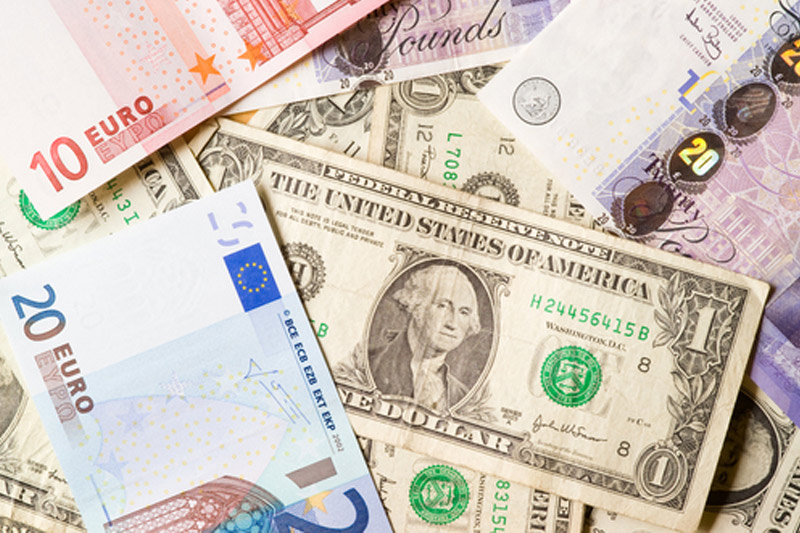Investing.com -- The dollar was consolidating in early trade in Friday after surging to a three-week high on Thursday in response to growing confidence that the economically damaging tariffs enacted by the U.S. and China on each other’s products will be reversed.
By 3 AM ET (0700 GMT), the dollar index was at 97.992, having risen as high as 98.078 overnight thanks to gains against the British pound, euro and Australian dollar. The index tracks the greenback against a basket of developed market currencies.
The Japanese yen, a haven currency that has suffered particularly badly as hopes for a trade settlement have grown staged a modest comeback overnight after stronger-than-expected household spending numbers for September overnight.
Elsewhere in Asia, the Indian rupee weakened after Moody’s cut India’s sovereign rating outlook to negative from stable, citing rising public deficits and debt levels.
The pound, meanwhile, was opening flat. It hit a two-week low on Thursday, dipping briefly below $1.2800 after the Bank of England adopted a more dovish outlook about the possible need for interest rate cuts, given the weakening of global growth this year and the hit to domestic growth from the prolonged uncertainty over Brexit. That uncertainty is set to extended well into next year by the general election on Dec. 12.
For the first time in over a year, two members of the bank’s Monetary Policy Committee dissented from the overall view, calling for an immediate rate cut.
“All told, the MPC is demonstrating a clear easing bias, and given the downside risks to growth, looks increasingly minded to ease policy early next year,” said ABN Amro Bill Diviney in a morning note.
The euro has also traded weaker since Thursday morning when the European Commission’s forecast reflected low expectations for the kind of fiscal stimulus that many, including the European Central Bank and International Monetary Fund, say is needed to revive the euro zone economy.
After another weak set of German industrial output data earlier in the week, France’s are due at 3:45 AM ET (0745 GMT). The U.S. data calendar for Friday is led by the University of Michigan’s consumer sentiment survey at 10 AM ET.
